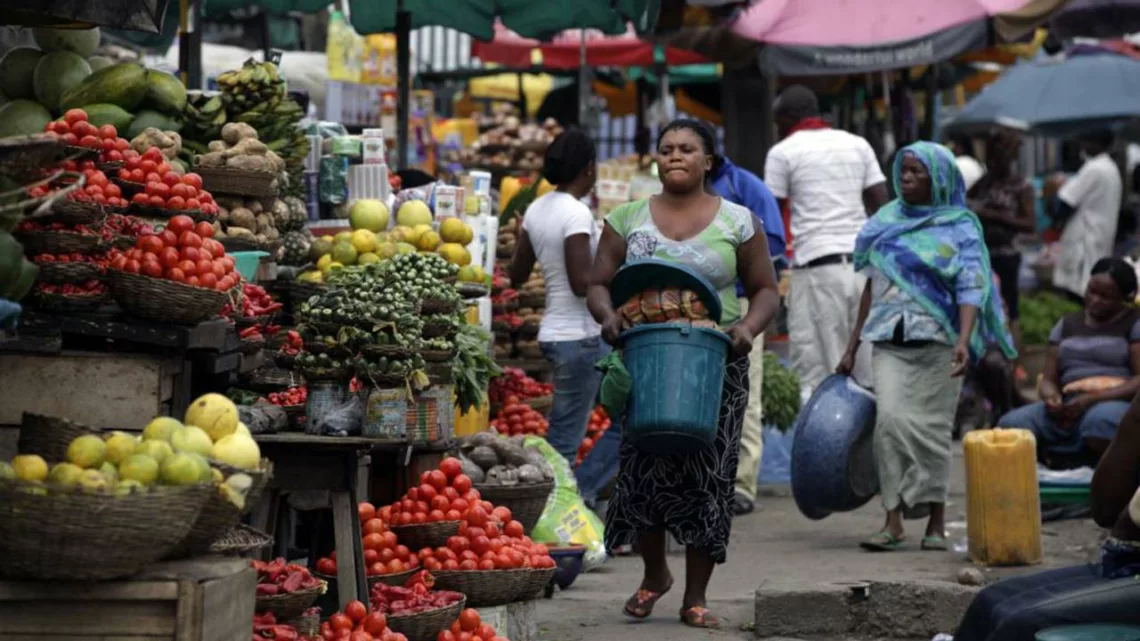Three months after President Bola Tinubu declared a State of Emergency on Food Security in Nigeria, the current situation of food in the country is still concerning.
In July 2023, the president declared the state of on food, the development which the government considers the situation of food production and availability as a matter of national security and urgency. It also requires that the government take some measures to address the challenges faced by Nigerian farmers and consumers.
Findings showed that despite government efforts to address food security, vulnerability to human insecurity and displacements, armed conflicts, rural banditry, natural resource conflicts, economic shocks and macro-economic instabilities have continue to push many Nigerians into economic stress and food insecure.
According to the Food and Agriculture Organisation of the United Nations (FAO), Nigerian government must address other key driver of food insecurity such as; crude oil price volatiles, regional crises, inflation, supply chain crises/disruptions and vulnerability to climate change-extreme whether events, droughts, desertification, land degradations, and biodiversity losses to achieve its agricultural transformation.
Already the UN agency last week confirmed that 24 million Nigerians were food insecure between June and August, 2023 as projected in the Cadre Harmonisé (CH) analysis report released earlier this year.
However, the September 2023, headline inflation rate released last week by the National Bureau of Statistics (NBS) showed an increase to 26.72 per cent mostly driven by high cost of food with 30.6 per cent inflation. The development indicate that the presidential declaration of the state of emergency on food security is yet to manifest result that will led to achievement of the desired food and nutrition security transformation.
Minister of agriculture and food security, Abubakar Kyari, had in October 6, unveiled a comprehensive roadmap to drive the President’s Renewed Hope Agenda for the agriculture sector.
In addressing the most pressing needs in the sector, the minister said the federal government is currently handling preparation for the next dry-season farming beginning with plans to cultivate 70, 000 hectares of wheat in November with a target production of about 875,000 metric tonnes.
But the current budget of N426.98 billion (1.96 per cent) allocated to the sector fall short of expectations as Maputo Declaration recommends 10 per cent of countries annual budget to agriculture.
According to analysts, the 1.96 per cent budget allocated to agriculture in the 2023 budget demonstrates lack of commitment to the sector’s transformation.
There is also no known supplementary budget allocated to drive the objectives of the state of emergency on the food security.
Director of information, ministry of agriculture and food security, Dr Joel Oruche said that the ministry is implementing project to support farmers in cultivating staple food crops such as wheat, rice, maize, sorghum, soyabean, and cassava with critical farm inputs at subsidised rate, including research and development for high-yielding, drought-tolerant, disease-resistant, and nutritionally fortified crop varieties.
According to the him, the government has provided farmers with access to quality inputs, targeted subsidies for fertilisers and pesticides, education on modern farming techniques, infrastructure development for dry season farming.
He said the declaration of state of emergency on food security intends to align policies, resources and implementation strategies to boost productivity and ensure quantum leap in production to guarantee household and national food security.
He said, “The government is also introducing dry season irrigated farming across the country, utilising abundant irrigable lands with functional irrigation facilities this is in response to food demand-supply gaps created by insecurity, removal of fuel subsidies, and Ukraine-Russia conflicts.
The ministry has provided animal feeds, salt lick, poultry transportation cages, pasture seeds, and cuttings as support for increased production, conducted nationwide sensitisation and awareness creation on biosecurity measures for livestock farmers, butchers, hides, and skin value chain actors, and mass vaccination of animals against transboundary animal and zoonotic diseases.
“Several initiatives have been implemented to support farmers, including land development, construction of micro earth dams, rehabilitation of dams, and design and installation of solar powered dryers/cold storage rooms at vegetable markets.
“Training has been conducted on climate resilient practices in tomato, rice, maize, yam, cowpea, maize, and chicken production. The ministry also conducted an assessment visit to inspect agricultural implements and equipment recommended for smallholder farmers.
Training programs have been conducted for women on small ruminant, youth in poultry enterprises, and farmers in various states. Additionally, training has been conducted on electronic crop management, cassava farming, and poultry farming,” he added.





